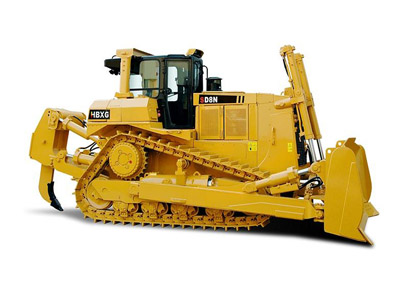What are the things to consider before buying a bulldozer?
Investing in a bulldozer is a significant decision that requires careful consideration of various factors to ensure that the chosen equipment aligns with your specific needs and operational requirements. Whether you're expanding your construction fleet or starting a new project, this comprehensive guide outlines key considerations to keep in mind before buying a bulldozer.
1. Determine Project Requirements
Start by clearly defining the requirements of your projects. Consider factors such as the type of terrain you'll be working on, the size and scope of your projects, and the specific tasks you need the bulldozer to perform. Different dozer models are designed for various applications, from general earthmoving to specialized tasks like grading or forestry work. Understanding your project requirements will guide you in selecting the right type and size of bulldozer.
2. Assess the Power and Size
Bulldozers come in various sizes and power ranges. The size of the dozer should match the scale of your projects, and the power should align with the type of material you'll be moving. Larger bulldozers are suitable for heavy-duty tasks and large-scale earthmoving, while smaller models are more maneuverable in confined spaces. Evaluate the engine power, blade capacity, and overall size of the bulldozer to ensure it meets the demands of your specific applications.
3. Consider the Undercarriage Type
The undercarriage is a critical component of a bulldozer, and its type plays a key role in its performance on different terrains. There are two main types of undercarriages: standard (or low ground pressure) and heavy-duty (or high ground pressure). Standard undercarriages are suitable for softer terrains like mud or sand, providing better flotation, while heavy-duty undercarriages excel on harder surfaces like rock or gravel. Choose the undercarriage type that suits the predominant terrain of your projects.
4. Evaluate Blade Types and Attachments
Bulldozer blades come in various types, each designed for specific tasks. Straight blades are versatile for general-purpose earthmoving, while angled blades are effective for pushing material to one side. U-blades are ideal for carrying large loads, and specialty blades cater to unique applications such as grading or forestry work. Additionally, consider the availability of attachments for your bulldozer, such as rippers or winches, which can enhance its versatility and efficiency on the job site.
5. Review Operator Comfort and Controls
The comfort and ease of operation for the bulldozer operator are crucial for productivity and safety. Check the design of the operator's cabin, ensuring it provides ample visibility, ergonomic controls, and climate control features. Comfortable seating and intuitive controls contribute to operator efficiency during long working hours. A well-designed cabin enhances overall job site performance and reduces operator fatigue.
6. Consider Maintenance and Serviceability
Easy access for maintenance and routine service is essential to keep your bulldozer running smoothly. Assess the design of the bulldozer in terms of accessibility to engine components, filters, and other service points. Models with features like ground-level access for daily checks and routine maintenance tasks can contribute to reduced downtime and lower overall operating costs.
7. Budget and Total Cost of Ownership
While the initial cost of the bulldozer is a significant consideration, it's essential to evaluate the total cost of ownership over its lifespan. Consider factors such as fuel efficiency, maintenance costs, and the availability of replacement parts. A higher upfront investment in a more efficient and durable bulldozer may result in long-term cost savings and better overall value.
8. Brand Reputation and Dealer Support
Choose a bulldozer from a reputable manufacturer with a history of producing reliable and durable equipment. Research the reputation of the brand in terms of performance, reliability, and customer satisfaction. Additionally, consider the availability of dealer support, including maintenance services, parts availability, and proximity to your project locations. A strong dealer network ensures timely support and minimizes downtime in case of issues.
By carefully considering these factors, you can make an informed decision when purchasing a bulldozer, ensuring that the equipment meets your project requirements and provides long-term value for your investment.


评论
发表评论